Sidelights on the First Western China Symposium & Discipline Development Forum on Nanomaterials
Nanomaterials and nanotechnology have already been widely used in our daily life and are playing an increasingly important role in economic and social development. Hosted by Northwestern Polytechnical University and Northwest University, the First Western China Symposium and Discipline Development Forum on Nanomaterials was successfully held in NPU from December 7th to 9th in order to share cutting-edge research achievements in the field of nanomaterials. More than 50 scholars and experts joined the forum.
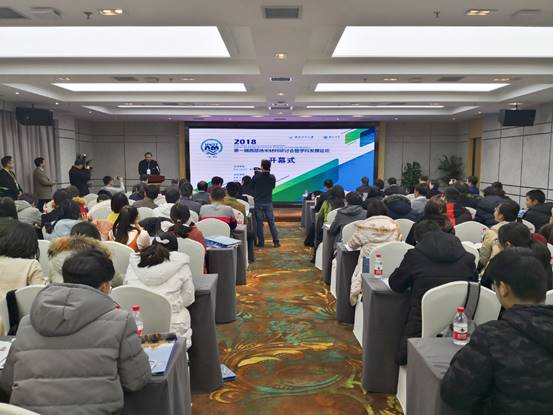
Chairman Prof. Yu Shuhong from University of Science and Technology of China hosted the opening ceremony and Vice President Wang Yaoyu from Northwest University delivered an opening speech on behalf the two host institutes. More than 20 scholars and experts from University of Science and Technology of China, South China University of Technology, Hunan University, Beijing University of Chemical Technology, Nanjing University of Posts and Telecommunications, Northumbria University, National Center for Nanoscience and Technology, Technical Institute of Physics and Chemistry of CAS, Process Engineering of CAS, Fujian Institute of Research on the Structure of Matter of CAS and so forth reported on scientific research, achievement transformation, and application prospect of nanomaterials. These reports have an inspiring impact on future development of nanotechnology.
Vice President Prof. Wang Lianhui of Nanjing University of Posts and Telecommunications introduced the widely-concerned problem on early diagnosis of clinical oncology. Several nano-structures proposed by his group are quite helpful in the application of illness diagnosis, medicine development, environment monitoring and food safety.
Prof. Wang Dan of Process Engineering, CAS introduced HoMSs material, which was commonly regarded as an important material in energy transformation and power storage, sensor, catalytic action and drug delivery. The material plays a crucial role in solar cell, lon battery and gas sensor.
Prof. Lu Tongbu from Tianjin University of Technology mentioned two main threats to sustainable development: energy shortage and environment pollution. Researcher Tang Zhiyong of National Center for Nanoscience and Technology introduced NMOFs, which was a new catalytic material.
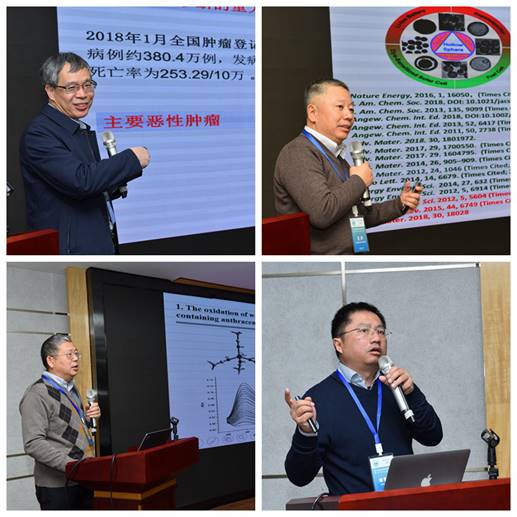
Prof. Zhang Guangzhao from South China University of Technology has rich research experience in marine antifouling materials and his strategy “dynamic surface antifouling” was meaningful for future marine antifouling work. Prof. Wang Xun from Tsinghua University introduced sub-1nm ultrathin nanocrystals. Prof. Qiu Jieshan from Beijing University of Chemical Technology explained functionalization and self-assembly technology of graphene in particular. Teachers, students and experts at present were interested and discussed the application of functional carbon material in water treatment, biomaterial and so on.
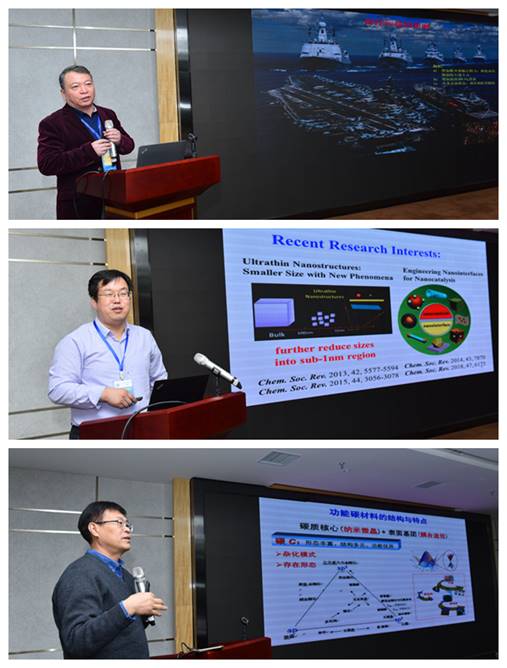
Researcher Cao Rong of Fujian Institute of Research on the Structure of Matter, CAS talked about MOFs, COFs, HOFs in his report. Prof. Wang Shuangyin from Hunan University mainly introduced electrocatalyst defect from the aspect of chemical research. Prof. Yu Shuhong studied biomimetic synthesis, processing and functionalization of nano-structure unit at different dimension. Prof. Liu Dongsheng came up with FGA strategy which could help to control self-assembly.
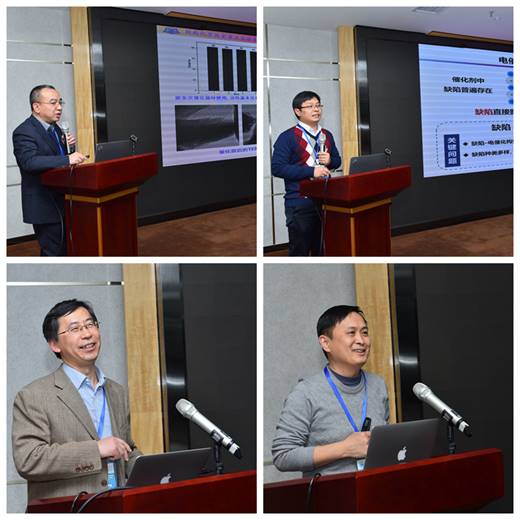
Researcher Zhang Tierui of Technical Institute of Physics and Chemistry, CAS introduced hydrotalcite nanomaterials and used it to improve catalytic activity. Prof. Li Dan of Ji’nan University elaborated on coordination supramolecular material from structure-directed to function-directed. His group mad outstanding contribution in coordination supramolecular material. Prof. Xu Dongsheng from Peking University designed a kind of photocatalyst.
Prof. Shen Peikang from Guangxi University pointed out current problems during construction of expressway in China. Associate Prof. Xu Ben’s group sought to take advantage of elastic instabilities on soft substrate to precisely control the morphologies switching, and resulting properties, of sensing and actuations. Prof. Guo Xiaohui from Northwest University showed TMDs developed by his group, providing chances for the commercialization of noble metal catalyst.
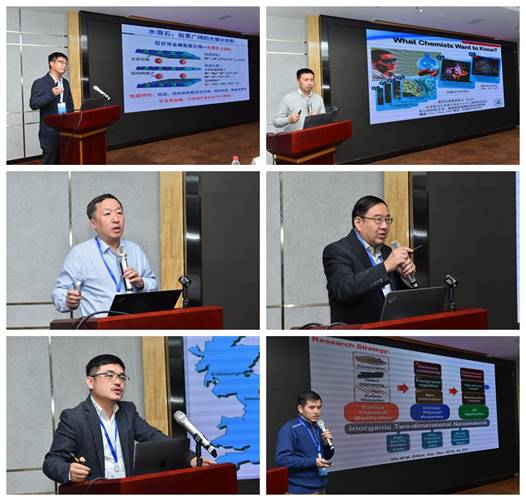
The forum also invited scientific editors fromNational Science Review, Wiley Press and Cell Press. Three editors made detailed introduction to teachers and students at present about new changes and new trends of paper publishing national-wide.

Furthermore, students who listened to these reports spoke highly of this forum. Doctoral student Luo Chunjia from School of Natural and Applied Sciences, NPU said that “the forum is quite helpful for my research and study. The spirit of these experts encourages me to work and study harder in scientific research.” A sophomore student from Queen Mary University of London Engineering School, NPU expressed his admiration to the professors and experts at present whereas another student became interested in quantized field theory after listening to the reports.
The forum was fulfilled with fervent discussion. Experts encouraged students to take chances and further study nanomaterials. Students represent future and could make more contribution to the development of nanotechnology and social economy in west China.
This forum was organized by Office of Disciplines Development of NPU, Queen Mary University of London Engineering School, NPU, Institute of Flexible Electronics of NPU and College of Chemistry & Materials Sciences, Northwest University.

Reporter: Yuanting Li, Yu Na
Photographer: Dongxiang Zhao
Reviewer: Jie Kong

